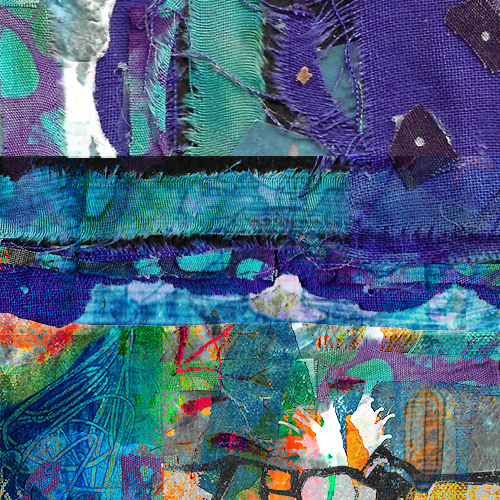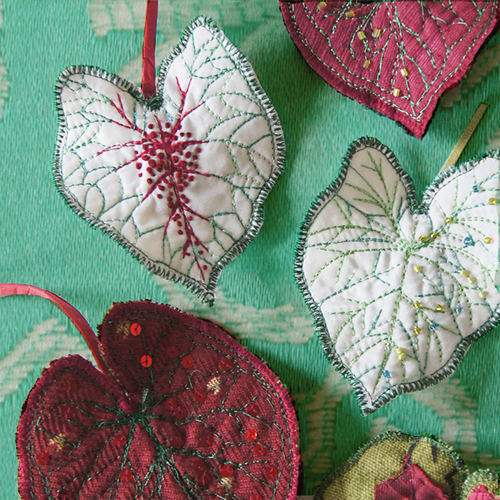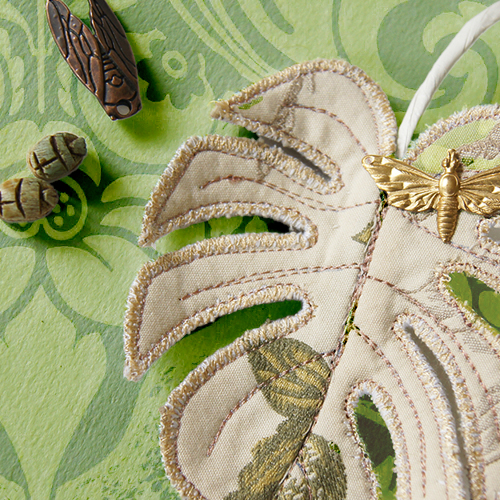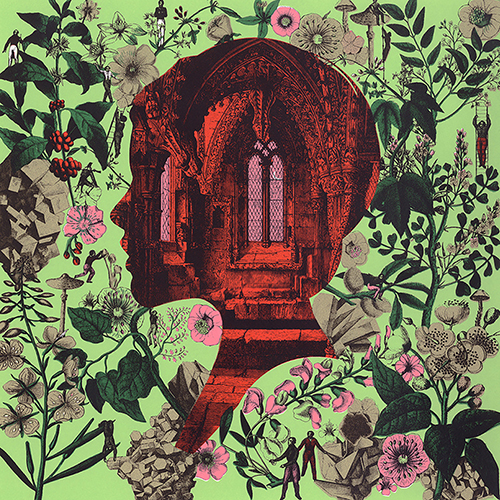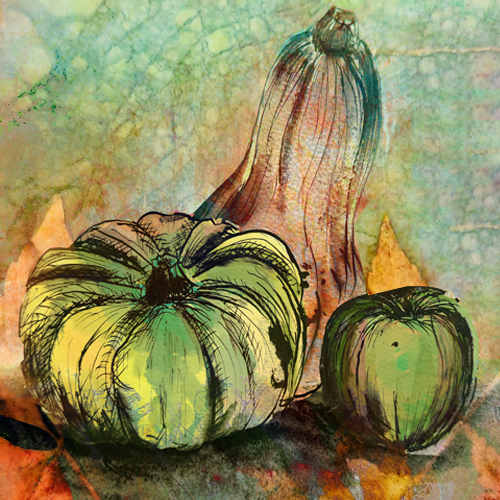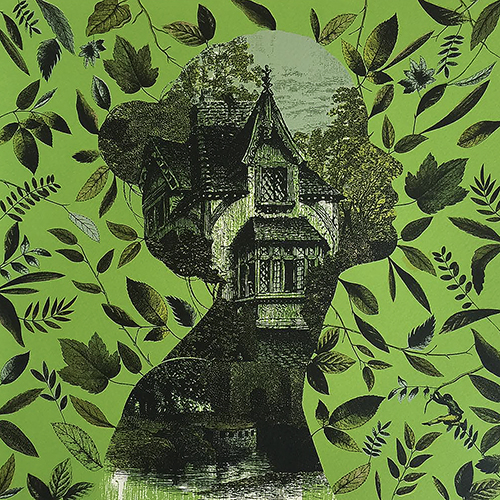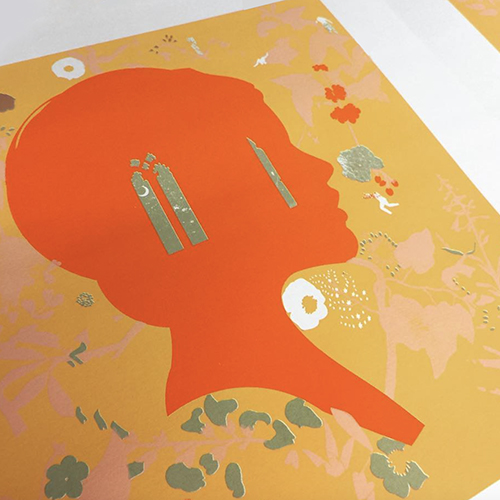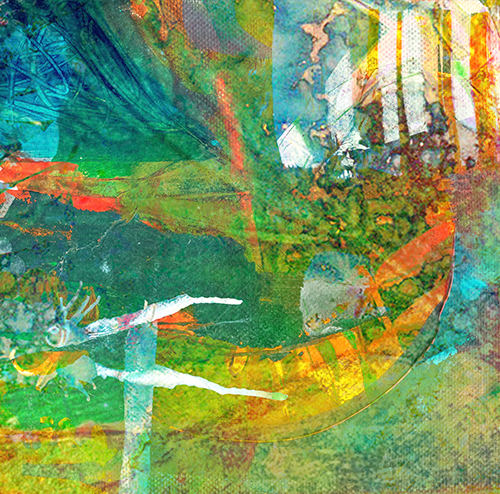I glanced out the passenger side window of Francine’s Jeep through my sunglasses.
“Oh, we stopped,” I mumbled.
I had assumed that Fran had pulled the jeep over to allow me – no, us – to bask in my beautiful but also kinda tragic moment of self-actualization and vulnerability. I had, after all, just come out as non-binary and gay. When she started to cry, I believed the tears to be very much for me.
“Fuck, Sadie,” she said, sobbing. Her head was bowed on top of her steering wheel.
“I know. It’s ok. I’m totally good with this. It’s so liberating for me,” I whispered.
She tried to turn toward me but she was crying too hard.
“Fuck, Sadie,” she said again. “This is all too much right now.”
“I’ve been wanting to tell you for a long time,” I said. “It’s nothing to be sad about. I’m really happy with this.”
“I’m so overwhelmed right now.”
“Because of me?”
“Because of fucking everything.”
“Is it about what I just told you?”
She shook her head and didn’t answer.
Please understand that I had never experienced Fran like this. Prior to this car ride, I would have said that she was one of the warmest, most bubbly, and care-free people I’d ever met and I would have meant it.
That said, Billy and I were always close with our cousin Julian and we were a bit uneasy when this mysterious girl only referred to as “Francine” entered the picture as Julian’s new pretty redheaded girlfriend.
The Julian we knew was aromantic and jaded in everything except his raw spontaneity and specific interests.
He was, after all, the seven year old who jumped off the high dive at the Slackport pool without thought.
the ten year old who tasted the slimy Danger Eel Patty at the Coastal Grille in Kurtistown, the first of us to smoke weed and drink booze.
He’d always been a video game obsessive and a skateboarding fanatic.
A rabble rouser.
A lone wolf.
And now, out of nowhere, he had a girlfriend.
Julian? A girlfriend?
Our Julian? This can’t be.
Yet, as was her way, this devil known as Francine managed to disarm Billy and I right off the bat. The first time we all met her was during Thanksgiving a few years back – or actually it might have been the night before Thanksgiving. After dinner Fran led Julian, Billy, and I to this bar called Patricks down the road in Slackport and we all did drunken karaoke. I don’t want to remember what I sang but I recall at one point that Fran belted out a sultry version of I Want It That Way by the Backstreet Boys.
Just like that – from mysterious, faceless ‘Francine’, the devil to chill as fuck Fran the angel – from the old dynamic to a new, better one.
It was a steady escalation in much the same way most modern friendships seem to be. It wasn’t long until we exchanged numbers, then a few weeks later she sent me a text asking me to hang out one-on-one. We got dinner at the Slackport Diner. Our texts became more frequent. We hung out a whole bunch with Julian and Billy and also one-on-one. It got to the point where she confided in me things about Julian and her own life and then one thing led to another and she asked me to be a bridesmaid at her and Julian’s wedding.
So this was naturally somebody I thought I could trust with my own vulnerabilities. She was someone I would dare say I looked up to and admired, not only because of her wisdom, kindness, and flowing ethos but also for her dark sense of humor and ability to drink the world under the table.
But what did I know? I have a way of idealizing people sometimes. She’s actually a lot like the first person I ever came out to.
“I lied to you,” continued Fran in the Jeep.
“About what?”
“I don’t know. The beach.”
“What?”
“Fran. What is going on?”
“We’re not having a beach day.”
“Where are we going?”
“We’re going to the beach.”
“But we’re not having a beach day.”
“I am scared and I need someone to be with me,” said Fran. “He’s cheating on me and I need you to come with me.”
“Ok,” I said. I knew she of course meant my cousin, Julian. He and Fran were engaged and scheduled to marry in the autumn.
“I’m just really fucking overwhelmed.”
“I’m sorry.”
“It’s not your fault.”
“I mean about what I said earlier. About being queer. I should have picked a different time.”
She waved that away, shook her head, and restarted the car.
“I just can’t deal with that right now.”
“Ok.”
This story actually really kinda starts a decade ago, or at least some of it does. Or maybe none of it does, depending on your perspective.
Let me take you on a trip to Slackport High School – my junior year, to be exact.
“It’s Sadie. Look who decided to join us?” exclaimed my twin brother Billy as I took a seat across from him in the S.H.S. cafeteria. He was munching on a peanut butter and jelly sandwich our stepmom had packed.
“Let’s not make a big deal about it,” I replied, giving him the finger.
The usual crew was there – Billy, our friends Peter, Seth, Ashley, and Maya, and now me. I hadn’t yet noticed that someone new was sitting directly to Billy’s left.
“Where have you been?” asked Billy.
“Bathroom,” I said. “And then I had to get my medicine from Ms. Green. Some of us are mentally ill, sweetie.”
“Did you, like, take a shit?”
“Fuck off. I never take shits at school.”
“Well, Rita is joining us today.”
“Who?” I asked.
He presented her like a game show model would, both arms extended and with a wide smile. “Rita.”
“Oh, hey,” I said, catching a shy glimpse of her. “I didn’t see you there.”
“Rita, this is my sister, Sadie,” said Billy.
“Hey, I’m Rita.” Her voice was light but kinda smoky and raspy – it caught you by surprise in a really pleasant way if you weren’t used to it.
“Is today your first day?” asked our friend Ashley.
Rita nodded, her attention fixated on picking away at a packet of M&Ms – I’ve never seen someone make eating little chocolate candies look cooler.
This new girl was cool as fuck and I was shaking. It took me so long to get over this first impression.
The details are all kind of fuzzy now. Who the fuck honestly knows when and why I finally opened up to her. It had a lot to do with our senses of humor, which were seamlessly compatible in ways that surprised me. Like me, she had an appreciation for the weird and surreal, a fondness of wit. Our exchanges tended to be as playful as they were absurd.
“Sadie?” she’d call from across the second floor hallway, maybe during the middle third period on a Tuesday when the halls were quiet and cleared. She’d be but a speck in the distance but she was probably doing something like outstretching her arms or giving me the finger. “Do you have a goddamn hall pass?”
Startled – half really, half mock – I would probably stop in my tracks and look around like I was really under attack.
“You want me to call my lawyer?” Semi to full non-sequiturs were common during these charades.
“Mine lives across the street.”
“You want me to call the police? I’ll get Principal Taylor to arrest you right now, bitch.”
“I dare you to try.”
And then we’d pass each other and try our absolute damnedest to keep a straight face – me on the way to the water fountain, she on her way back to class from the bathroom.
She connected with Billy as well. We became kind of an inseparable triumvirate for a while.
“I fucking hate Owl City,” blurted Rita one time during lunch.
“But you’ve been singing it all day.”
She laughed hard. “I know. I hate it.”
Billy started singing Fireflies and soon Rita made it a duet.
“YOU WOULD NOT BELIEVE YOUR EYES IF TEN MILLION FIREFLIES SOMETHING UP THE WORLD WHILE I FELL SOMETHING—”
“Fell asleep,” said Billy.
“WHILE I FELL ASLEEP,” bellowed Rita.
“What a wonderful song,” I commented sarcastically, but also kinda half serious tbh.
The three of us spent a lot of time in each other’s company but I also really valued the one-on-one time I got with her. We had one class together during junior year, a film elective where we mostly watched old movies and joked around. It was my favorite class. One day, toward the end of the school year the teacher, Mrs. Peich took us on a field trip to see a special showing of Lawrence of Arabia. Rita picked me up early and we destroyed a blunt. We spent the whole movie making jokes and laughing – about halfway through we slipped into the bathroom and smoked another blunt. It’s a miracle we weren’t expelled.
Days like that would make me feel like I was floating above the stratosphere. Just unbridled, teenaged exuberance. But, on the other hand, if things were ever mundane and uneventful in our interactions at lunch or in class or even while hanging out outside of school, I would perceive that Rita hated me and that I was just completely doomed. A few times I was so miserable after one of these latter lunch periods that my history teacher had to send me to the school’s psychologist’s office.
And then I would make it my mission to “win” her back. If I could just get her to laugh especially hard at one of my jokes at lunch and/or throw me some kind of compliment, all would be ok, at least for a little while. It took me many years to appreciate just how insanely unhealthy and narcissistic this was.
Rita Kingston was a tornado and I was a shabby barn on the Oklahoma plains.
She was so cool.
She was hilarious.
She cursed. A lot. Fuck this and fuck that and all that shit.
She typed fast on AIM. Way faster than me.
She acted older than she was. SoCal thing, I think.
She smoked weed. Wow.
She seemed to think I was funny and cool. Me?
I just really, really liked her as a friend, I guess.
She was my teenaged femme messiah.
The seagulls were orbiting and squawking above, and when I wasn’t watching the pattern in the sand created by Fran’s bare feet, I was looking up toward the birds to make sure they were not about to poop on me, or worse – swoop down, land on my shoulder, and peck at my skull.
Actually, I take that back – I probably would have welcomed that latter scenario.
“I’m so overwhelmed right now.”
“Because of me?”
“Because of fucking everything.”
The sun had disappeared sometime during the drive over and everything felt dull and gray, even though little hot beams of light peaked through the cloud cover, not quite reaching the seashore. There were no sandcastles to be seen, no frisbee exchanges, no colorful kites flying in the wind; only the sand, the clouds, the distant waves, a few stragglers and a quiet family or two.
“I’m just really fucking overwhelmed.”
“I’m sorry.”
“It’s not your fault.”
“I mean about what I said earlier. About being queer. I should have picked a different time.”
“Is it supposed to rain?” I asked.
Fran looked at the cloudy sky for a hot second and shrugged.
“I think it’s gonna rain,” I said.
The breeze was light but picked up every so often and when it did, the air smelled of salt and seaweed. It was low tide and down toward the shallow water were many little blue and brownish seashells stuck in and just above the sand, completely unattended.
“Fuck, Sadie.”
“I know. It’s ok. I’m totally good with this. It’s so liberating for me.”
“Look,” said Fran, finally, pointing toward a dark stick-like figure that appeared to be levitating in front of a cloud of sand.
I half-near bumped into her, not aware that she had frozen in place.
“I don’t know what that is,” I said, squinting and cupping my hands over my eyes.
“It might be them.”
Fran resumed leading the way as we sauntered toward this mysterious, wavy speckle. Then, once more, she stopped.
“I think they’re coming this way,” said Fran.
“I can’t tell.”
“I’m gonna wait. Let’s wait. Yeah, they’re coming this way. We should wait.”
Fran fell to the sand and sat cross-legged, inspecting the distant figure or, in her mind, figures with obsessive focus. The seagulls continued to squawk and the waves wooshed and receded.
“Is that Julian?”
“There’s two of them.”
“I only see one person. It looks like a dude.”
“I see a boy and a girl.”
I don’t know what the fuck Fran was imagining, but by this point I very distinctly saw one (1) singular person with tiny twig-like legs (not to scale), brownish swim trunks, and a bare, semi-muscular chest.
“Fuck, Sadie. This is all too much right now.”
“I’ve been wanting to tell you for a long time. It’s nothing to be sad about. I’m really happy with this.”
“I really don’t think that’s him,” I said.
Fran (and by proxy, I) waited, and waited, and waited, until the guy came into sharp focus and grew big and tall like a true-to-life human being. He turned out to be a conventionally attractive, anonymous fuckboy carrying a surfboard.
“Have you seen any guys with long dark hair,” asked Fran as the surfer finally passed. “hanging out with a woman with, like, curly blonde hair?”
“No, sorry,” he smiled and didn’t so much as blink, shaking his head as he walked.
“Fuck,” muttered Fran.
“Wait,” said the guy, turning back to us. “Does this person surf?”
“Not that I know of,” answered Fran. “The dude doesn’t. I don’t know about the girl.”
“I don’t know any female surfers so yeah, I’m sorry.”
I watched this surfer closely until he shrunk back into the voided blob we’d first met him as.
Fran did nothing for a while, and then, as if compelled by a flipped switch, sprang to her feet. She stood waiting, with hands on her hips, for me to get up from the sand. I took my sweet time.
One time early on during our senior year at Slackport High, Rita Kingston decided to tell me her “deepest, darkest secret.”
We were sitting in her room late at night; me cross-legged on the floor, she lying down on her bed. Her room may not have seemed like much to a neutral observer but to me it was pure magic. It was always slightly unkempt, what with her shriveled, unmade sheets; the perpetual foothill of laundry by the window; and the spare candy wrappers and isolated chip bags lying on the floor here and there. She had a shitty old TV on top of her dresser that barely worked but nonetheless was almost always switched to Comedy Central or the Discovery Channel or something silly like that.
Her room also happened to have a wonderful view of the New England sea – you couldn’t see the sand but you could see and sometimes hear the ocean and the waves. On nights like this, it was just me, Rita, and the ripples.
It was well past midnight. We’d been laughing really hard, I don’t at all remember about what. It was one of those bouts of laughter where you can just look at the other person for a split second and burst into hysterics. You are imminently connected to the other person in the convulsions; it’s like, for five, ten, fifteen minutes, you are united as one holy being transcending space and time.
These moments always inevitably come to an end, though. You both laugh yourself out and it gets quiet as you both mourn the return to earth. These, I now understand, can become highly dangerous situations, especially if both parties are too naive to accept what has been lost. Once you’ve laughed yourself out, you’re damned if you’re gonna recapture the rapture.
The main light source at this late hour was from the muted infomercial playing on Rita’s TV. The infomercial was just bright enough that I could see the frameless polaroid she had hanging on her wall of me, Billy, and her sitting together on a park bench, all making faces like we’d smelt thirty thousand farts.
“I have a secret to tell you,” she exclaimed, startling the shit out of me. Her voice was like a samurai sword in the late night quiet.
“What? What?” I answered, practically jumping out of my body.
She laughed, and I laughed, but not as hard as we had been before.
“I want to tell you a secret. A deep dark secret.”
“What is it?”
“Guess.”
“Is it about my brother?”
“Noooooooooooo.”
“Is it about me?”
“Noooooooooo.”
“Is it about somebody I know?”
“Maybe.”
“Just tell me.”
“Well, Sadie McPhriosun. I am here to tell you today that…”
“Yes?”
“…”
“I’m waiting.”
“…”
“…”
“I’m gay.”
We said nothing for a few moments, and then we did what always seems to happen – we laughed some more.
“Oh, fuck off.”
“Wait, ok. Ok ok ok,” she said, catching her breath and releasing her grin a bit. “You know Reed, right?” asked Rita.
“Not super super super super super super well.”
“Reed Harrison.”
“Vaguely.”
“Yeah, we’ve been hanging out.”
“And?”
“That’s all. That’s my secret.”
“You’re hanging out with Reed Harrison.”
“Yup.”
“Titillating stuff, Rita.”
She let out a big yawn and stretched all about.
“I’m so tired,” she said.
“Same, I think,” I said.
It was when we were both beginning to fade off into sleep – her on the bed, me on a sleeping bag she’d lent me – that I decided to reveal my secret.
“I actually have a secret for you,” I said.
“What is it?” she asked, half asleep and mumbling.
“I’m not actually joking though.”
“Just tell me.”
“Well, I’m gay. Like actually. Not as a joke.”
But she took it as one. She snickered and then of course I snickered, and then we fell asleep. No further comment from Rita, not then, not ever.
She was the first person I’d ever told.
Fran led us down a secret passageway I hadn’t been through since I was a teenager.
It could very well be the worst kept secret in all of New England. Just about everyone ‘round these parts knows about the little marshy area at Featherstone Beach not far from the main parking lot; the one with the winding planked path that leads to a semi-steep hill which overlooks a random-ass park with an old white steeple up along the side. You see a big open field with a lot of artificial grass and some tall trees down the far end – and then smack dab in the middle is some imported (I assume) sand and two yellow volleyball nets with bulky black poles side by side.
Maine is the only place maybe in the entire universe where you are going to find a beach volleyball court that is not actually on the beach. It’s not even like there isn’t a literal beach with plenty of open space on the sand, like, right there.
I stood at the top of the hill feeling just about nothing inside as Fran skidded down and approached the court. There were about a dozen of them down there playing volleyball – or at least it seemed like that many. Thinking back, it may have been fewer. Maybe it was more like six or seven people… I don’t fucking know and frankly it’s not that important.
However many people there were, what I observed from up high was a pretty ruckus party atmosphere. Beach volleyball seems like the one sport you can play extremely inebriated. Their music was just loud, their weed dank, their debauchery, from what I could tell, all encompassing. They were all pretty young – probably around Fran’s and my age, if not a little younger. Only one or two of them had bothered to wear bathing suits and even they had kept on a tee shirt. The rest of this group were regularly dressed as they might be at the grocery store or at a family BBQ, in plainclothes hopping around and spiking the ball like the angsty deviants they surely are.
What any of these people had to do with Julian or Fran, I still do not exactly know. My mind was sorta elsewhere.
There did seem to be one person of interest: a short curly-haired blonde with high arching eyebrows. I do not know if her eyebrows are permanently that way, but they sure seemed to be fixated high on her forehead as Fran talked to her.
Fran’s body language was alternatively agitated, spastic, and paranoid. She waved her arms all around but kept taking a few steps from the curly-haired girl whenever the latter seemed to be speaking. Then when Fran decided it was her turn to talk, she’d take a few steps toward the girl and get all up close and personal. It was certainly more animated than I’d seen Fran act all day, at least since the drive over to Featherstone.
Whereas I was just kind of numb to the whole thing, the other party animals down there had been too busy with their edgy little volleyball game to much notice the fracas developing between Fran and their friend. They were about as divested from this whole ordeal as I was.
Eventually, the blonde girl kinda shrugged and Fran shook her head and departed back up the hill.
Then, in a flash, Fran took my hand and dragged me back to the beach.
“He’s not fucking here,” she said. The partying resumed behind us, as did the volleyball game.
Before I understood just about anything about myself, my bodily functions would do a good deal of talking for me.
One time, I was like a baby dragon breathing spittle fire. The vomit got all over my hand cuz I had to prop the little garbage flap open somehow or else I’d be getting everything all over the McDonalds’ floor. I closed my eyes and melted into nothingness, and everything around me appeared green, yellow, and gray. It felt like all the skin on my face was being tugged backwards and I lost some sensation in my neck.
The next thing I knew Billy and Rita were up on their feet, laughing and applauding. I did a cute little bow and curtsy for them and anyone else watching.
“Go Sadie,” cheered Rita.
“That was epic,” said Billy. “Truly epic.”
I had been so desperately trying to avoid soiling the McDonalds’ floor tiling but I couldn’t help it when I vomited a little bit more on the way back to our table, worst of all splashing my new purple Doc Martens.
I realize now that this was an unconscious, poetic expression of infatuation and desire.
“But wait,” I blurted, wiping away various forms of condensation from my face. “Are you guys a couple now?”
Our table looked out on Prospect Avenue in my hometown of Slackport, Maine. The summer sun was just beginning to set and the seagulls were orbiting and squawking above. Cars wooshed by in both directions and the cross-town bus stopped to pick up whatever passengers were waiting by the curb nearest to us. It was clear enough that if you squinted a little, you could see the luscious hump of Sapphire Hill beyond the fenced off Walgreens parking lot across the way.
Neither Billy nor Rita immediately jumped to answer my question. They looked at each other but did not exactly meet each other’s glances. Rita was straining to smile, and Billy rubbed the back of his head.
“Wait wait – are you ok?” asked Rita.
I glanced at my stained Blink-182 tee-shirt and swiped away at some discolored drool by the collar.
“Oh, I’m great.”
“Are you, like, sick?” asked Billy.
I shrugged. “No idea.”
“That was fucking legendary,” said Rita.
“Thank you, thank you.”
We got quiet again and I watched a mom and dad carry two heavy trays over to their over-eager kids who were sitting at the table next to ours.
Rita reached over and patted me on the shoulder.
“Do you have any more fries?” she asked me.
I shook my head.
She laughed for some reason, and of course that meant me and Billy laughed as well.
“You know how much I love the McPhriosun twins,” said Rita. “You guys know Reed right?”
I felt another jolt in my stomach.
“Reed Harrison?” I asked.
“Yeah, we’ve been hanging out.”
“I know,” I said.
“You did?” asked Billy.
“Can we go?” I howled. “I’m starting to feel kinda gross again.”
“You know that I love both of you guys,” said Rita. “I just started hanging out with Reed. I can’t cheat on him.”
It was then that I spit up whatever was left to be disposed of. My Doc Martens were now completely ruined; as was the floor; as was my reputation at this Prospect Ave McDonald’s we’d been frequenting all summer.
“I’m breaking off the fucking engagement,” said Fran, back on the Featherstone sand, near the parking lot.
I didn’t know what to say. All I know is that I was happy we were finally leaving. I was numb and confused and couldn’t consider much of anything.
Fran ranted and vented the whole way home and I mostly just “ah-huh”ed and nodded through it, pretty much what I’d been doing since my botched attempt at coming out to her.
When I got home I got real high. I took some Adderall and Xanax and then rolled a half-decent blunt and I was soaring through the Milky Way and beyond.
I couldn’t feel my arms and I loved it. It’s a burden, always having to carry your flailing arms around. I sat on the floor of my room with my legs outstretched as a numb, staticky ball of bliss rolled down my spine. My head was feeling super light, like I could punt it across the street, or kick it up to the sky… lose it in the bright shiny blue and catch it on the way down softly like a mother rescuing her baby out of a burning apartment.
I’m telling you – I was fucking baked.
Something about that weird fucking trip to the beach had made me nostalgic. Or maybe it was just all the toxins I had rushed into my body. Probably drooling, my eyes heavy and red, I got up from the floor and approached my bookshelf, pulling my junior year high school yearbook from it and nearly dropping it. I stood there just staring at the cover for a long while, taking in the smooth red cover, the big black lettering, the polaroid style pictures of that year’s seniors. Then I finally flipped it open, skimming the autograph section, taking in all the little drawings and sarcastic musings from friends and acquaintances alike. There wasn’t so much as a single positive, unironic, heartfelt statement to be found – that is except from Rita Kingston, who wrote, “Bonjour Sadiekins. I better be seeing you a whole lot this summer. XOXO Rita.” She drew a little caricature of herself smoking a cigarette around her name.
Then I went straight to the “candid” section in search of a photograph I had not seen in many years – a photo of the old gang – Me, Billy, Rita, Peter, Seth, Ashley, and Maya – all sitting together at our lunch table in the SHS cafeteria. I looked and looked and looked, just staring at the page like I could melt it with laser beams, and I could not find it. Then I realized that I had not seen this photograph in many years because it did not exist, or if it did, it was not in this yearbook. I resolved to ask Billy about it, and then slammed the book shut and kind of dropped it with a little thud.
Did I take to her because she would disappear?
Do I take to everyone because they will disappear?
Do I take to myself because I disappear?
I thought back to the last time Rita and I had spoken.
“I think I’m having a panic attack,” I said out loud. We were halfway up the incline.
Rita, riding next to me, turned and said, “Are you alright?”
“It’s not the Roller Coaster,” I shouted, eyes closed, probably lying. I felt like I was about to be flung off the thing and that no seatbelt or restraint could possibly be safe enough.
When I dared to open my eyes, I found Rita having the time of her life, both arms extended way up into the air, screaming her goddamn head off. I wanted to cry at the sheer loneliness of all this but all I could think about was how when I was a little girl I’d kind of imagined that this was how my wedding day would feel.
It was raining and the billion little drip drip drips were beige colored, maybe a little like dirt.
I had a total meltdown when we got off. Screaming, crying, cursing, all that. She told me we could just talk and at first I felt really nurtured. And, like, I convinced myself I was so fucking happy to talk to her, but not really. She was being limiting; a part of us was closed off to each other, not because I wasn’t willing to open myself, rather because she was afraid. She was afraid, not me. That’s what I’ve told myself all these years.
Anyway, this is all to say that I probably won’t be coming out to anyone for a while.
I haven’t spoken to Fran nor my cousin since that day on the beach. It’s been a couple months and I’d like to see Julian again soon.
I doubt I’ll ever see Rita again.
